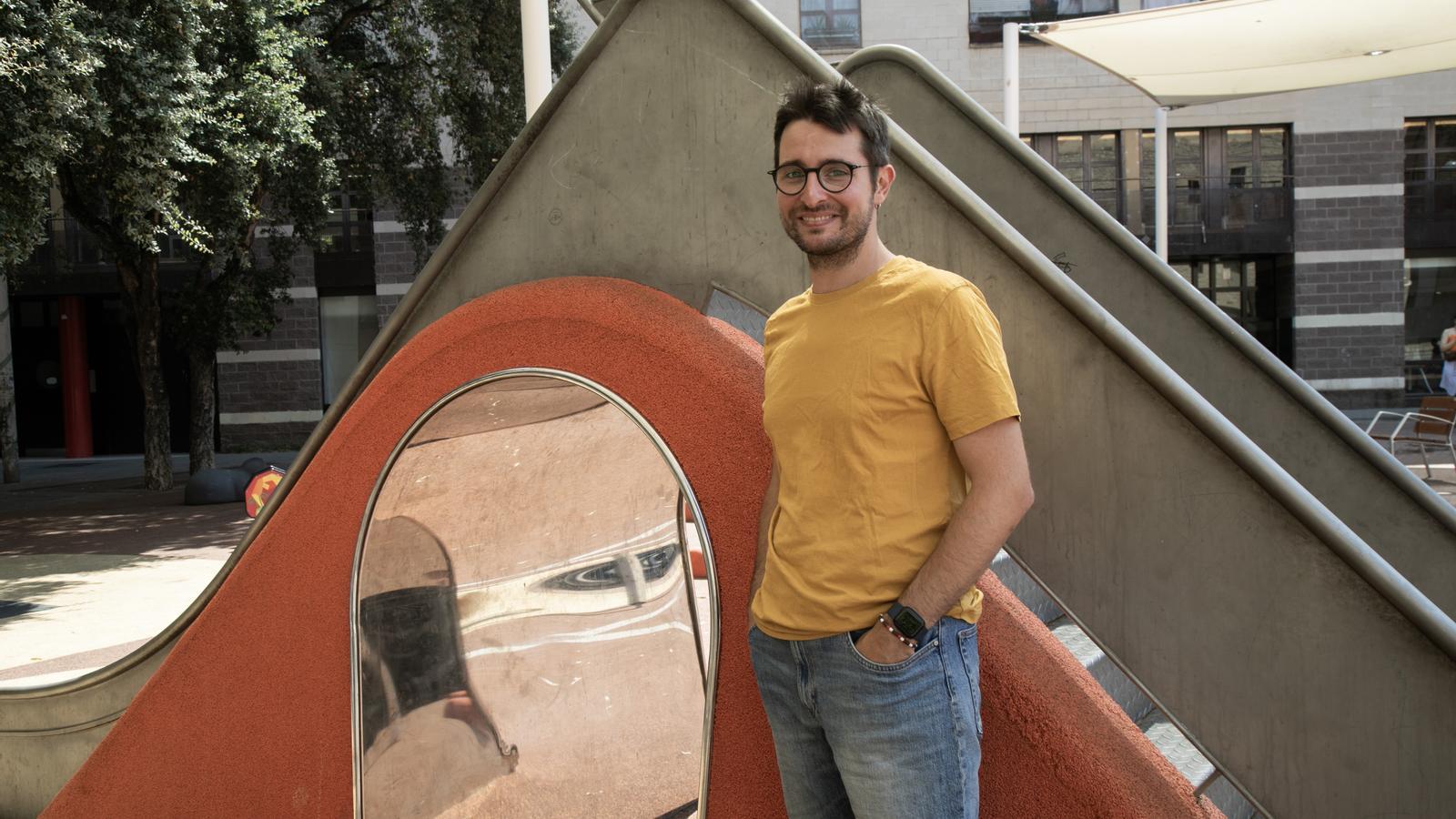"I don't want my children's faces stolen from me."
Illustrator Daniel Farràs-Berdejo shares drawings on his Instagram account, Papamtomàquet, about the challenges of being an involved father.


BarcelonaAre all fathers clumsy? Daniel Farràs-Berdejo argues they aren't. He arrives with a tomato and a lemon tattooed on his arm, symbolizing his children and the stars of Papambtomàquet, his Instagram account where he shares illustrations about the challenges of being an involved father.
"The account was born from a fatherhood group I joined when we found out we were having a child," he explains. There he discovered that the doubts and fears about being a father were shared by other men, contrary to the stereotype of the father as a comical or incompetent figure. "There were a lot of issues I hadn't seen anywhere," he recalls. His goal is to break stereotypes: "In popular culture, the father figure is a bungler like Homer Simpson. Hell, no. There are fathers who want to do things right."
In just two months, Papambtomàquet surpassed two thousand followers. "From the beginning, there was a lot of enthusiasm; men and women wrote me messages," he celebrates. His illustrations combine personal reflections, everyday scenes, and recommendations. All under the same idea: celebrating conscious and active fatherhood. Although his majority audience is women, Daniel insists on addressing men to normalize fatherly involvement without heroizing it.
Fatherhood has changed his life and sharpened his perspective: "Once you put on the [fatherhood] glasses, you see things differently. You make decisions without navel-gazing; you have a whole family." He describes this experience as "a roller coaster": there are "sadder and more frustrating" parts, but above all "moments of absolute happiness." However, to experience them, you have to prioritize, something that isn't always compatible with the expectations of the working world. "The company wants you to put in a lot of overtime, and since you're a man, you want to do it because the job is very important to you." But that's not always the case. He himself recounts how he quit his job after being relegated to a position he didn't deserve for defending his rights related to parenting.
This view contrasts with that of fathers of the past. "I spend the day away from home working, and then I come home and everything's done, and all I have to do is teach my kids a little or play and be the good guy," Daniel jokes. "From my parents' generation to mine, there's a huge change in lifestyle and expectations. We know we won't get rich or have second homes. The professional aspect isn't as important, and we focus more on family." What has changed since then? Before, gender roles stipulated "what a father and mother should do with their children," whereas now "we have so much information that we have to make many more decisions."
Being a father has also opened the door to a different, "softer" masculinity, one that deviates from traditional patriarchal canons. "Fatherhood is the best excuse for being a caring and tender person," he maintains. Unlike his lifelong friends, with whom he finds it difficult to talk about fatherhood, contact with other fathers has allowed him to connect emotionally with other men: "Fatherhood has helped me get to know men from this perspective as well. [...] We can relate to other fathers with a sense of tenderness; we can talk about emotions."
The lack of positive role models is another obstacle, especially in fiction, where the figure of the absent father dominates. In this sense, he highlights characters like Guido, the father of La vita è bella, and Barça coach Hansi Flick, about whom he emphasizes that he stopped working to take care of his wife and that he treats the Barça players with care and like a father.
To preserve his children's privacy, Daniel uses drawings of tomatoes and lemons. "Leaving information about your children on social media, to the point that sometimes there are people who can know which school the children attend, seems super dangerous to me." In this sense, he recounts a revealing experience he recently had: Zara launched a clothing line with a print very similar to his tomatoes and lemons. Although the company did not respond to Daniel's attempts to contact him, after he made a video in which he denounced the situation, the company described it as a "coincidence." In any case, Daniel is clear: "If I publish these images, it's because I don't want my children's faces to be stolen," he explains.
